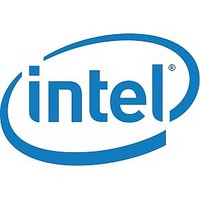FW82546GB S L75S Intel, FW82546GB S L75S Datasheet - Page 16

FW82546GB S L75S
Manufacturer Part Number
FW82546GB S L75S
Description
Manufacturer
Intel
Datasheet
1.FW82546GB_S_L75S.pdf
(54 pages)
Specifications of FW82546GB S L75S
Operating Supply Voltage (typ)
1.5/2.5/3.3V
Operating Supply Voltage (min)
1.43/2.38/3V
Operating Temperature Classification
Commercial
Mounting
Surface Mount
Pin Count
364
Lead Free Status / Rohs Status
Not Compliant
82546GB — Networking Silicon
3.2.2
3.2.3
10
Arbitration Signals
Interrupt Signals
STOP#
IDSEL#
DEVSEL#
VIO
REQ64#
ACK64#
REQ#
GNT#
LOCK#
INTA#
INTB#
Symbol
Symbol
Symbol
STS
I
STS
P
TS
TS
TS
I
I
OD
OD
Type
Type
Type
Stop. The Stop signal indicates the current target is requesting the master to stop the
current transaction. As a slave, the 82546GB controller drives STOP# to request the
bus master to stop the transaction. As a master, the 82546GB controller receives
STOP# from the slave to stop the current transaction.
Initialization Device Select. The Initialization Device Select signal is used by the
82546GB as a chip select signal during configuration read and write transactions.
Device Select. When the Device Select signal is actively driven by the 82546GB, it
signals notifies the bus master that it has decoded its address as the target of the
current access. As an input, DEVSEL# indicates whether any device on the bus has
been selected.
VIO. The VIO signal is a voltage reference for the PCI interface (3.3 V or 5 V PCI
signaling environment). It is used as the clamping voltage.
Note: An external resistor is required between the voltage reference and the VIO pin.
The target resistor value is 100 K
Request Transfer. The Request Transfer signal is generated by the current initiator
indicating its desire to perform a 64-bit transfer. REQ64# has the same timing as the
Frame signal.
Acknowledge Transfer. The Acknowledge Transfer signal is generated by the
currently addressed target in response to the REQ64# assertion by the initiator.
ACK64# has the same timing as the Device Select signal.
Request Bus. The Request Bus signal is used to request control of the bus from the
arbiter. This signal is point-to-point.
Grant Bus. The Grant Bus signal notifies the 82546GB that bus access has been
granted. This is a point-to-point signal.
Lock Bus. The Lock Bus signal is asserted by an initiator to require sole access to a
target memory device during two or more separate transfers. The 82546GB device
does not implement bus locking.
Interrupt A. Interrupt A is used to request an interrupt by port 1 of the 82546GB. It is an
active low, level-triggered interrupt signal.
Interrupt B. Interrupt B is used to request an interrupt by port 2 of the 82546GB. It is an
active low, level-triggered interrupt signal.
Name and Function
Name and Function
Name and Function
Datasheet












